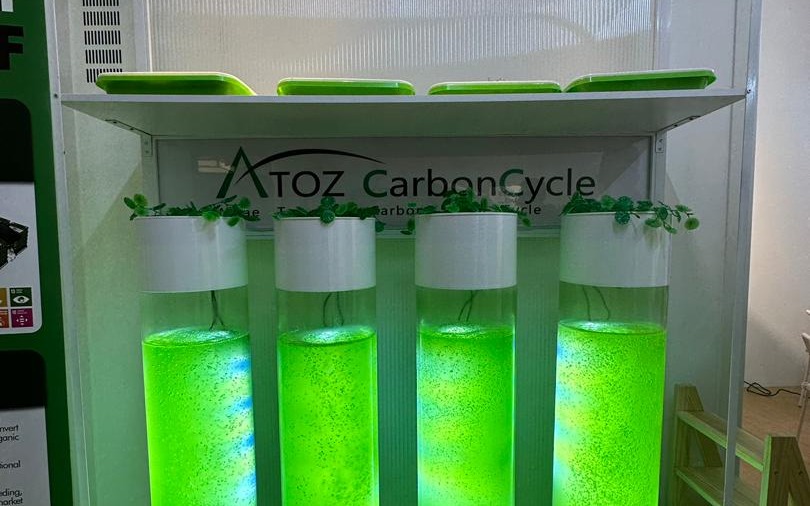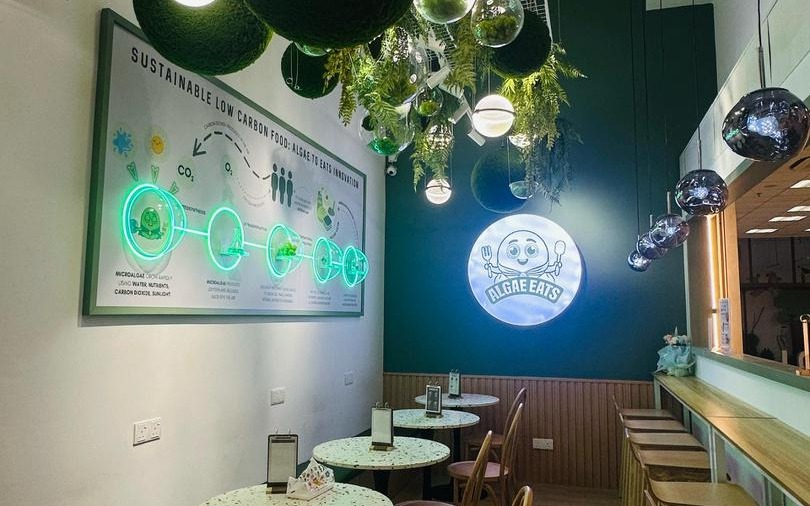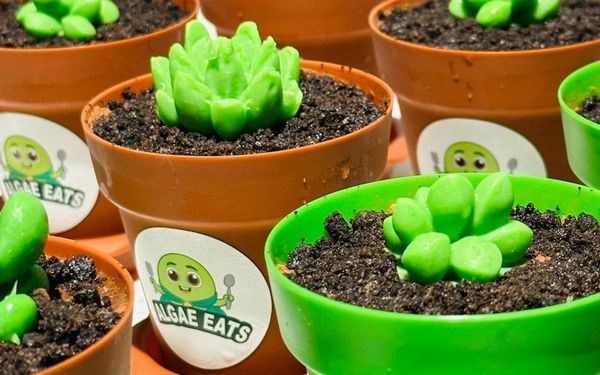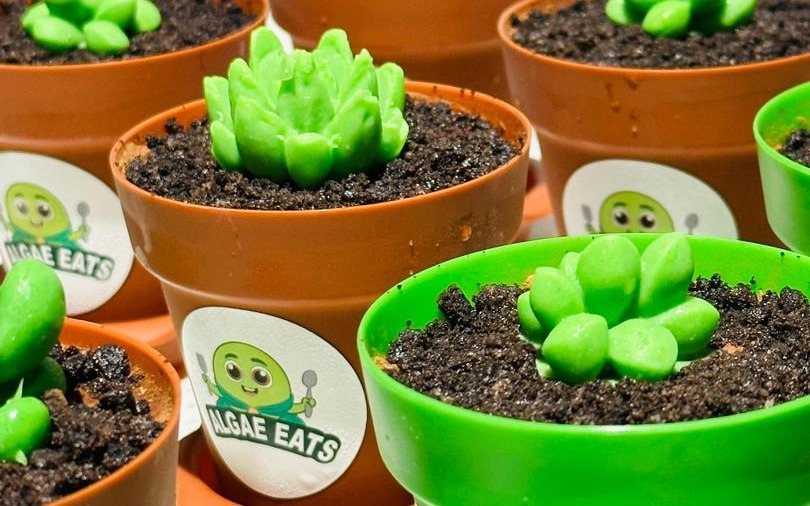KUALA LUMPUR, Aug 18 — As grocery bills continue to climb, with prices of essential goods rising without noticeable improvement in quality, one local startup is offering a solution grounded in nature to bring healthier, more affordable food back to our tables.
Atoz Carbon Cycle is spearheading change by introducing microalgae biotechnology into Malaysian agriculture to restore soil health and reduce reliance on costly, chemical-heavy practices.
The firm brings a refreshing perspective rooted in innovative science and the experience of co-founders Jean Tan and Kelly Khiew, both aged 28.
Tan and Khiew had noticed that years of chemical-heavy practices have left soils depleted, harvests less resilient, and farmers trapped in a cycle of high costs and shrinking returns. The result? Ordinary families finding it increasingly harder to afford fresh, affordable, and healthy produce.
Focusing on regenerative practices and connecting farmers to wider sustainability efforts like carbon credit schemes, Atoz Carbon Cycle is working to make sustainable agriculture not just environmentally sound, but also economically practical.
Last year, Atoz Carbon Cycle was among the top five winners of the Selangor Accelerator Programme for its innovative carbon capture solutions and strong market potential.
In a recent interview with Media Selangor, Tan recalled how her time in the food industry exposed her to the harsh reality of rising prices. She said the problem lies not just with inflation, but also with a fragile, unsustainable food ecosystem heavily reliant on imports and chemical farming.
“We don’t control our food sources. When suppliers raise prices, we have no choice but to increase our product prices,” she said when met at her office recently.
Tan noted that decades of chemical-heavy agriculture have left soils degraded, reducing crop yields and quality and pushing Malaysia into a situation where quality produce is grown for export, only to be imported at higher prices.
Farmers, meanwhile, earn next to nothing after overheads.
Recognising that meaningful change must begin at the root, Tan and Khiew returned to their academic passion in biotechnology and bio-entrepreneurship to empower Malaysia’s primary producers — the farmers.

Microalgae biotechnology
Atoz Carbon Cycle’s solution is a regenerative agriculture model powered by microalgae biotechnology. Unlike conventional fertilisers that feed plants but leave soil depleted, microalgae act as “soil food”, enriching and revitalising microbial life essential for soil health.
“Microalgae feed the soil, becoming food for the microorganisms that support the entire food web,” said Khiew.
She said these microbes improve organic matter and increase soil fertility, helping farmers reduce chemical input and costs while boosting yields.
Describing Atoz Carbon Cycle as more than a product provider, Tan and Khiew referred to it as an “ecosystem builder” with stakeholders working together across the entire agricultural value chain.
The firm links farmers with corporate stakeholders eager to meet environmental, social, and governance (ESG) goals through carbon credit schemes.
Khiew said their model presents a win-win situation, where farmers who adopt regenerative practices generate carbon credits certified by international standards, which corporations can then purchase to offset their emissions.
This financial incentive helps farmers sustain transitions from conventional farming to regenerative agriculture without shouldering the costs alone, while helping companies meet sustainability goals.
Tan shared a success story involving EcoWorld, a property developer that was struggling with high maintenance costs for its ornamental trees. By adopting Atoz Carbon Cycle’s regenerative approach using microalgae solutions, the company was able to enhance tree health, improve air quality, and fulfil its ESG commitments.

Going national
Under its flagship project based in Sekinchan, Atoz Carbon Cycle works closely with smallholders to understand their problems and jointly develop practical solutions that emphasise gradual transitions over blunt shifts.
These efforts are complemented by knowledge-transfer initiatives and waste management solutions.
“We want Sekinchan to be a benchmark, showing how sustainable farming can thrive in Malaysia,” Tan said, noting that with Sekinchan attracting over 400,000 tourists yearly, it offers an opportunity to raise public awareness on regenerative farming.
She said Atoz is also working on similar projects in Hulu Selangor and collaborating with the Selangor Agricultural Development Corporation, with ambitions to expand to Kedah, Terengganu, Pahang, and Penang.
However, Tan and Khiew said scepticism remains a challenge, especially in convincing farmers about the benefits of carbon credit schemes. They address this by showing clear improvements in soil health, biodiversity, and crop quality.

Challenges to be addressed
Tan and Khiew said another major challenge is agricultural waste. Since 2023, through their work with local farmers, they have observed that about 300 to 400kg of unsellable produce are burned daily, contributing to further environmental harm.
According to Tan, farmers often have to bear high waste management costs, which force them to resort to open burning or landfills.
To tackle this, Atoz Carbon Cycle has set up a waste transformation centre in Sekinchan, offering farmers alternative ways to manage agricultural waste, such as composting and biogas production.
Tan said another critical gap in Malaysian agriculture is data collection, which her company addresses by providing knowledge-sharing workshops and simple data collection methods.
“Many of our farmers have worked the land for decades but have never really understood their soil. Decisions are made by copying neighbouring farms rather than based on soil health or data.
“We teach them in a way that makes sense, often starting with farmers taking photos of their crops and soils,” she said, noting that younger farmers are starting to adopt more modern tools.
Tan and Khiew believe the key to a lasting change is to build a system where farmers can be self-sustaining, while connecting with industries seeking to reduce their carbon footprint.
Their approach has already gained interest from private companies in the construction, food and beverage, and telecommunications sectors, among others, that wish to participate in green initiatives while supporting local farmers.
“With collective effort, we believe Malaysia’s food system can transform in the next five years. Microalgae is just the starting point,” Tan said.




